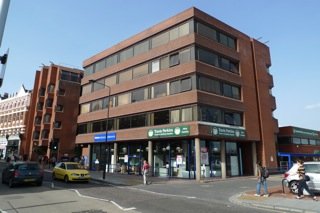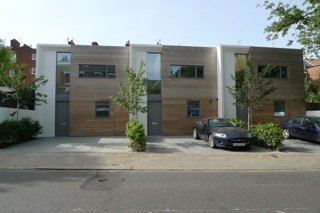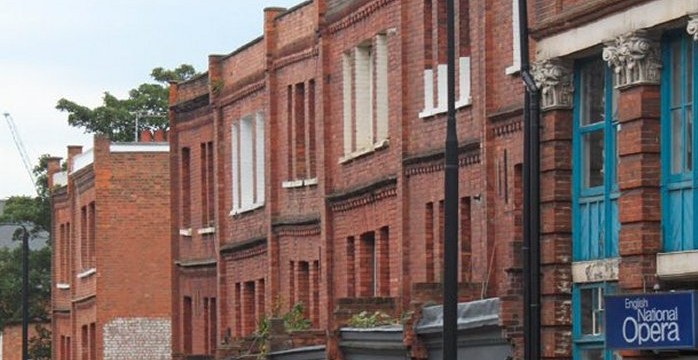Housing: What the parties say
Housing – we need more of it, and it needs to be affordable for more than the highest earners. Not too many people disagree on that. How and where we deliver that is a different story and one that can be written at both the national, city and local level. At the local level, councils are also of course responsible for allocating and maintaining council housing and housing services.
Labour‘s very first manifesto pledge is to build 6,000 new homes – including council homes. It won’t introduce fixed-term tenancies and 80% market rates as long as it has that power. During the current administration, Labour has been selling off assets to fund schools and housing. The most obvious examples locally are 156 West End Lane (the Travis Perkins building) and the Liddell Road industrial estate. The party pledges to ensure that “developments led by the council deliver 50% genuinely affordable housing” (50% by floorspace is the existing target for any development in the borough). It also pledges to continue its reforms of council leaseholder and tenant services.

The Conservatives pledge to make the council’s housing and repairs services more efficient. Specifically they will change how maintenance and repairs are managed including using competitive tenders and reducing red tape. They will sell the freeholds of street properties that have more than 50% leaseholders and encourage right-to-buy. The manifesto makes no mention of additional or affordable housing.
The Liberal Democrats say they will take a proactive approach to creating new social housing, taking advantage of central government schemes and using planning powers to improve the borough’s housing mix and provide homes for young people at a price they can afford. They also want to give council tenants and residents associations a more active role in the delivery of repair and maintenance services.
The Green Party says it would “pioneer innovative models of housing, such a co-housing where individual units share facilities and social space” to keep housing affordable. Such housing would be a priority for new developments on council land. It would also create a register of good landlords to incentivse high standards.
UKIP, which doesn’t have a Camden manifesto but a generic local election one, says it will oppose the bedroom tax but provide incentives to re-use empty homes and that new housing should be directed to brownfield sites. It argues that ending “open-door immigration” would reduce the pressure on housing.
The TUSC, standing in West Hampstead, says it would prioritise the building of social housing including sheltered and accessible housing. It would also push for proper maintenance of current council housing stock by selecting a company that is sensitive to occupant needs/desires and able to provide quality for money. It would also work with developers to build sympathetic private properties of various sizes and that include affordable housing. It wants a register of local landlords and proposes rent caps for private tenants .
WHL perpsective: your reaction to these is likely to depend on your own housing situation and on the sort of communities you want to live in. If you believe that mixed communities are stronger and more interesting places to live than homogenous places then consider that (re)developments in all our wards should seek to improve the socio-economic mix. If you’re a council tenant then the issue may boil down to whether you think the current Labour administration has improved services to tenants or not.

Let us know your thoughts on the policies below and on what housing topics you think the parties should be concerned with.





Worth also mentioning that Labour is also doing/looking to do the following on housing:
1) Charging 150% council tax on empty properties. This is where property speculators buy u property and just hold them empty until the prices go up to a point where they want to sell. Empty properties suck the soul out of an area and drive the prices up for everyone. If you can afford to leave a property empty in Camden you can afford to pay a little extra council tax in our view. This policy has already seen some folks sell on or fill their empty properties. Camden Labour was looking at increasing the rate to 200%, but the Coalition Local Government Secretary Eric Pickles vetoed the proposal. But today the Labour Party pledged to introduce the 200% council tax on empty properties at a national level if elected, so a good reason to vote for us in both 2014 and 2015!
2) Protecting private tenants: Property in Camden is some of the most expensive in the country. More and more people are being forced into the private rented sector, where rents are high and there is little security for tenants. Camden Labour is funding the Camden Federation of Private Tenants and we run the London-wide landlord accreditation scheme to drive up standards. We are also researching how rent controls could be implemented and are campaigning to end no-fault evictions. I have met residents in West Hampstead whose rent has been increased by 8% in the last year. This bears absolutely no relationship to the sluggish pace at which salaries are increasing. If landlords are not going to act responsibly, then we will protect tenants.
To read our full manifesto, please check out the link below:
http://camdenlabour.org.uk/wp-content/uploads/2014/04/Making-a-difference-in-tough-times.pdf
Council policy was 6 months Council Tax free for vacant properties then 100% thereafter. This was changed 1/4/13 to 1 month free for vacant property, and property under refurbishment or structural works received 25% discount for up to 12 months.
I have the unfortunate position of having Camden as my freeholder on a flat I purchased in H2 2013 which was in very poor condition and need of significant refurbishment (uninhabitable).
After initial approaches to an unhelpful and unresponsive Planning Dept I chose the route of a private Approved Inspector company to get works signed off, but regrettably still had to receive Freeholder Consent from Council for minor standard work – basically knocking down a wall and installing a standard British Standards approved fire suppression system. The Council forecast this Consent would take 2 months but took more than 6! – despite my gentle pushing and Council never waiting for anything from me – given poor communication between Council’s myriad of departments, non answering of emails, pretending to not know the email recipient was required to action something [despite very clear specific annotation], not being able to get through to the required person (if they were not plugged into the phone system at the time – just a dead line) or if others plugged in, no answer, and no voicemail capability so could not leave a message. For days or weeks in one instance. And when finally do get through to someone, her excuse for not answering emails was “I get loads of emails”!
So people are penalized for bringing property back to habitable standard, not speculators, people who want to make it their home. I had to pay 75% and then 100% of Council Tax despite not being able to live in flat, equating to hundreds of pounds, near 4 figures. Together with the stress & frustration of dealing with Council incompetence and in the end was forced to stay in a hotel for a period between Flat moves.
So it’s all very well putting out headline grabbing statements & aspirations for the moral good, but it does not work in the real world where the Council are not able to carry out very basic functions in anywhere near a professional or competent manner.
It is wrong to turf council tenants off their property and build these so called mixed communitys social cleansing councillor theo has been getting carried away with his money making scheme with developers. As a result im voting green party